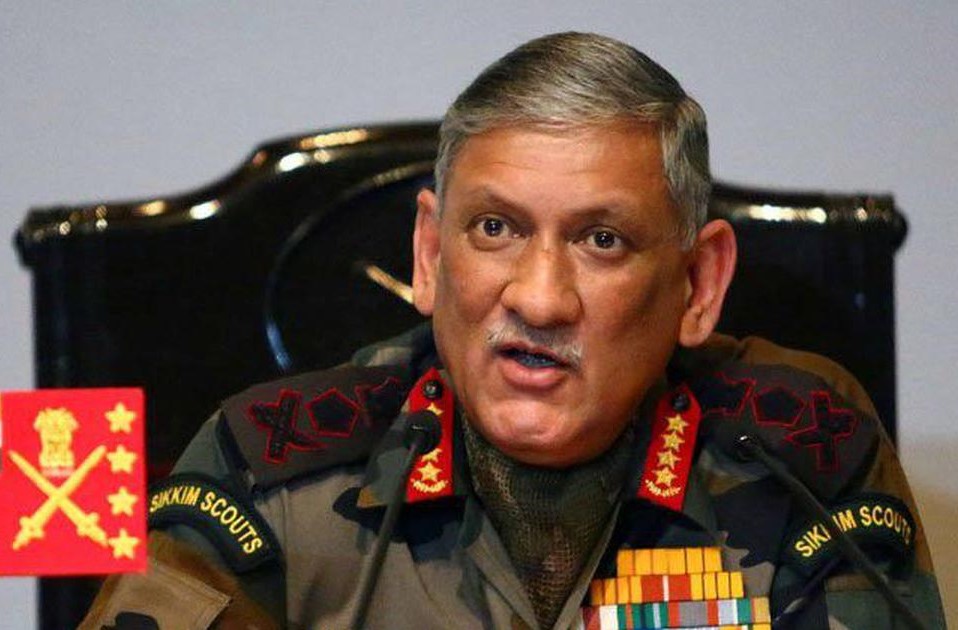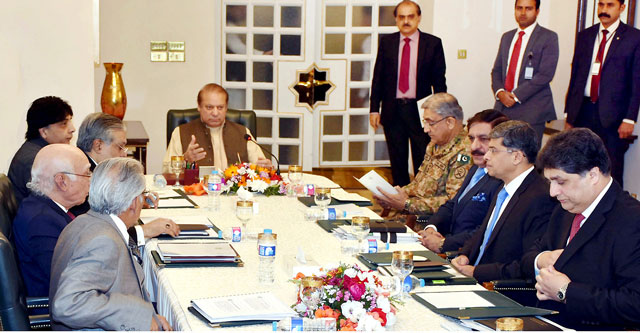Pakistan has opted to launch another outreach effort to improve relations with its two unpredictable neighbours India and Afghanistan. However, this sort of diplomatic impatience is not likely to work. What needs attention is identification of fault lines which come back in circles to haunt each such effort by Pakistan, and then try to rectify them, otherwise the results would remain the same—one step forward and two backwards.
As a result of numerous such knee-jerk efforts in the past, Pakistan has expended most of its options with respect to these two countries, which could have otherwise been a good bargaining chip. With the cushion almost decimated in the process, there is a likelihood that those planning for a fresh push may end up appeasing the two neighbours, more specifically India.
This decision was taken at a foreign policy review meeting on January 03, attended by the civil and military components of national leadership. Pakistan’s new Army Chief has also unwittingly contributed towards this impression by making a recent telephonic contact with the Afghan political and military leadership. While communication with the military command could be termed as right in its present context, interaction with the political leadership should have been left to appropriate tiers of Pakistan’s political leadership.
Pakistan’s Army Chief needs to ponder over generating a befitting tactical response to India’s recently embraced romance with surgical strikes. The young Indian army chief’s utterances with regard to continuation of surgical strikes should not to be taken lightly. General Bipin Rawat stated on January 02: “The force is to maintain peace and tranquility at the border but it will not shy away from flexing its muscle, if the need be”. He added: “The so-called surgical strikes were more of messaging. It was a messaging that was needed to be communicated. If there are terrorist bases across and if they continue to disrupt the situation on our side of the Line of Control then we have a right to take action against the terrorists,” he touted. Pakistan Army Chief, General Qamar Javed Bajwa has rejected what he called “self-defeating claims” by his Indian counterpart about “so called surgical strikes” and its possible recurrence. “COAS rejects self-defeating claims by Indian COAS about ‘so called surgical strikes’ and its possible recurrence,” DG ISPR tweeted.
Unfortunately, Pakistan’s handling of previous Indian claims about surgical strike was not appropriate. Pakistan’s denial strategy did not convince many amongst the international security community. For them, this was a rare comical musing, when an aggressor was confessing to an act of violence while the supposed victim was denying the occurrence.
False flag operations by the Indian military to justify surgical strikes remain a distinct possibility. Confession by India military of such an act, whether fictional or factual, should have invoked a spontaneous proportionate military response in the form of punitive strike against a target(s) of significant psych-social value. If so, the issue would have been settled once and for all; now it will keep surfacing until responded accordingly.
Rapprochement move towards India and Afghanistan is certainly ill-timed. It is initiated when leadership of these countries has crossed all previous marks of hubris and is in collusion with each other. Be it the BRICS summit, flouting of Indus Water Treaty, or supporting separatist elements in Pakistan on the eve of independence day speech or Heart of Asia ministerial meeting, Pakistan bashing has been a major point of convergence for Indian and Afghan political leadership.

An army report about the 2016 has stated that Indian forces have committed 379 ceasefire violations, killing 46 civilians and Pakistani forces in retaliation have killed 40 Indian soldiers. Another deeply worrying aspect of Indian actions in Indian Occupied Kashmir (IOK) is the attempt to change the demography of Kashmir and convert its Muslim majority into a minority. Recent reports of issuance of Kashmiri citizenship to non-state subjects have led to protests and clashes in the IOK. Equally disturbing are reports of extension of Securitization and Reconstruction of Financial Assets and Enforcement of Security Interest (SARFAESI) Act, 2002) to IOK, whereby Indian Banks can seize property of Kashmiri people and sell them to non-state subjects.
The prevailing environment of trust deficit between Pakistan and its two neighbours has not evolved out of advertent and inadvertent omission and commission on the part of Pakistan. It is a well thought out strategy of these two countries to take advantage of Pakistan’s exposure to a consumable vulnerability in the wake of 9/11. It sells well with the Americans, who are on the one hand pay masters of Afghan political leadership and on the other hand, are mentors of Indian role in “Contain China” drive. The US has invested so much to make Indian and Afghan governments follow the trajectories each is traversing that both these counties do not have the option of correcting the course.
The process of rapprochement with Afghanistan actually began before the January 03 meeting when the army chief telephoned the Afghan leadership, pledging to work for regional peace. Now he is about to visit Afghanistan. His predecessor had also made a promising start by throwing his weight behind Pakistan’s efforts to bring the Taliban to the negotiating table. Afghanistan has since long been accusing Pakistan of harbouring the Taliban. Pakistan strongly denies the allegations and has emphasized the need for finding a political solution to the Afghan conflict. Earlier General Raheel had expended phenomenal professional capital in making the first-ever direct talks between the Afghan government and Taliban happen. Being a military man, he opted for a negotiated settlement.
However, in real politick, such efforts were not destined to succeed when the bread and butter of the Afghan leadership depended on keeping Afghanistan boiling, and for this Afghan leaders were keener to look more for pretexts to walk away from parleys with Taliban than to engage and mainstream them. No wonder, some very meaningful Afghan peace processes have come to naught one after the other.
Despite the trust deficit, Pakistan joined Afghanistan, China and the US for to reviving the peace process in December 2015, under the brand of Quadrilateral Cooperation Group (QCG). But when preparation for talks were afoot, the US killed Mullah Omar’s pro peace successor Mullah Mansoor in a drone strike in Balochistan, scuttling any hopes for furthering peace talks. Later, the Afghan government approached the UNSC for placing the current Taliban leader on the UN terrorist list, hence erecting another speed breaker in the way of an intra-Afghan reconciliation.
During the foreign policy review meeting, PM Nawaz stressed “peaceful coexistence” among the countries in South Asia. “Peaceful coexistence, mutual respect and economically integrated region must be our shared objective and we must strive for realizing this objective. This could be possible only when we demonstrate a commitment to our aspirations of peace, progress and prosperity.” This message is another expression of Pakistan’s desire to have peaceful co-existence for the sake of peace and development in South Asia.
Though grim ground realities have not been able to subdue Nawaz Sharif’s obsessive-compulsive inclination to befriend India at any cost. He needs to understand that it takes two to tango, and earlier he does so, better it would be for the poor foreign office, which is committing blunders like Ufa and Amritsar like fiascos under duress. Under these circumstances the most appropriate option for Pakistan is to put on hold any meaningful rapprochement efforts towards India for 3-5 years. For a similar period, scope of talks with Afghanistan should also be limited to border management. During this timeframe CPEC gains would begin to take firm roots with most of the regional counties wishing to join it; and at that time India and Afghanistan would have no other option but to hold meaningful talks with Pakistan.




